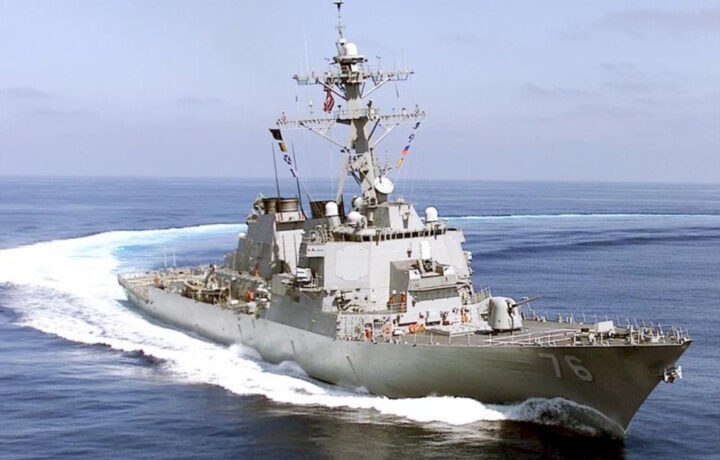A U.S. military court convicted a sailor based in Japan for attempted espionage. While such stories of military personnel engaged in such activities are actually rare, what makes this one especially concerning is that involved a senior non-commissioned officer.
Chief Petty Officer Bryce Pedicini, a fire control man, was charged with eight espionage-related counts in February for allegedly providing documents to an employee of a foreign government between November 2022 and May 2023. Pedicini was convicted on Friday of attempted espionage (Article 103a), failure to obey a lawful order (Article 92), and attempted violation of a lawful general order (Article 80).
“This guilty verdict holds Mr. Pedicini to account for his betrayal of his country and fellow service members,” NCIS Director Omar Lopez said in a statement. The NCIS is a branch of the sea service for investigations and counterintelligence.
“Adversaries of the United States are unrelenting in their attempts to degrade our military superiority,” added Lopez. “Nevertheless, the American public should be confident knowing that NCIS will also not relent in our mission to deter, disrupt, and defeat the ongoing threat from foreign intelligence entities. Although the overwhelming majority of Department of the Navy service members are honorable and faithful public servants, NCIS stands ready to expose those who are not.”
Pedicini, who was originally from Tennessee, had been previously assigned to the Arleigh Burke-class guided-missile destroyer USS Higgins (DDG-76). He was detained by NCIS on May 19, 2023, and placed into pre-trial confinement by his command. Pedicini’s sentencing, determined by a military judge, is scheduled for May 7.
According to the charging documents released by the U.S. Navy, Pedicini was accused of delivering two sets of classified national defense documents – referred to as “Article 1112” and “Article 1223” in the legal paperwork – to “a citizen and employee of a foreign government” between November 2022 and February 2023 in Hampton Roads, VA.
Pedicini gave classified information to a citizen or employee of a foreign government at least six times, the charging documents added. He obtained the information “under the guise of writing research papers.” It is not clear what foreign nation Pedicini was engaging with, but two other sailors have been charged in recent months with passing information to China.
Latest Sailor Charged For Espionage
This latest conviction comes just months after Petty Officer Wenheng Zhao, aka Thomas Zhao, was sentenced to more than two years in federal prison for accepting nearly $15,000 in bribes and passing military secrets to a Chinese intelligence officer.
The Chinese-born sailor admitted to exchanging sensitive information with the Chinese agent via a variety of means. The information included video recordings, photos of sensitive information, documents, information on U.S. radar at the U.S. military base in Okinawa, and OPSEC information on U.S. military exercises in the Indo-Pacific Region.
Another Chinese-born U.S. Navy sailor from California, Jinchao Wei, is also facing separate charges in connection with an unrelated alleged plot to pass information to a Chinese intelligence officer. Wei is now facing life in prison after he allegedly revealed sensitive information on U.S. Navy ships. He has pleaded not guilty.
A Senior NCO
What is also noteworthy about Pedicini’s case is that he was serving as a chief petty officer, a senior NCO, a grade that was only established on April 1, 1893, for the U.S. Navy. These chiefs bridge the gap between officers and enlisted personnel, acting as supervisors as well as advocates for their sailors.
More importantly, unlike petty officer first class and lower rates, advancement to chief petty officer in the U.S. Navy carries requirements of time in service, superior evaluation scores, and specialty examinations. It also carries an added requirement of peer review, and a chief petty officer can only advance after review by a selection board of serving master chief petty officers, in effect “choosing their own” and conversely not choosing others.
Today, there are three chief petty officer ranks: chief petty officer, senior chief petty officer, and master chief petty officer. Chiefs are further recognized for exemplary technical expertise within their rating, superior administrative skills, and strong leadership ability.
As a result, Pedicini’s conviction could leave a black mark on those he served alongside.




